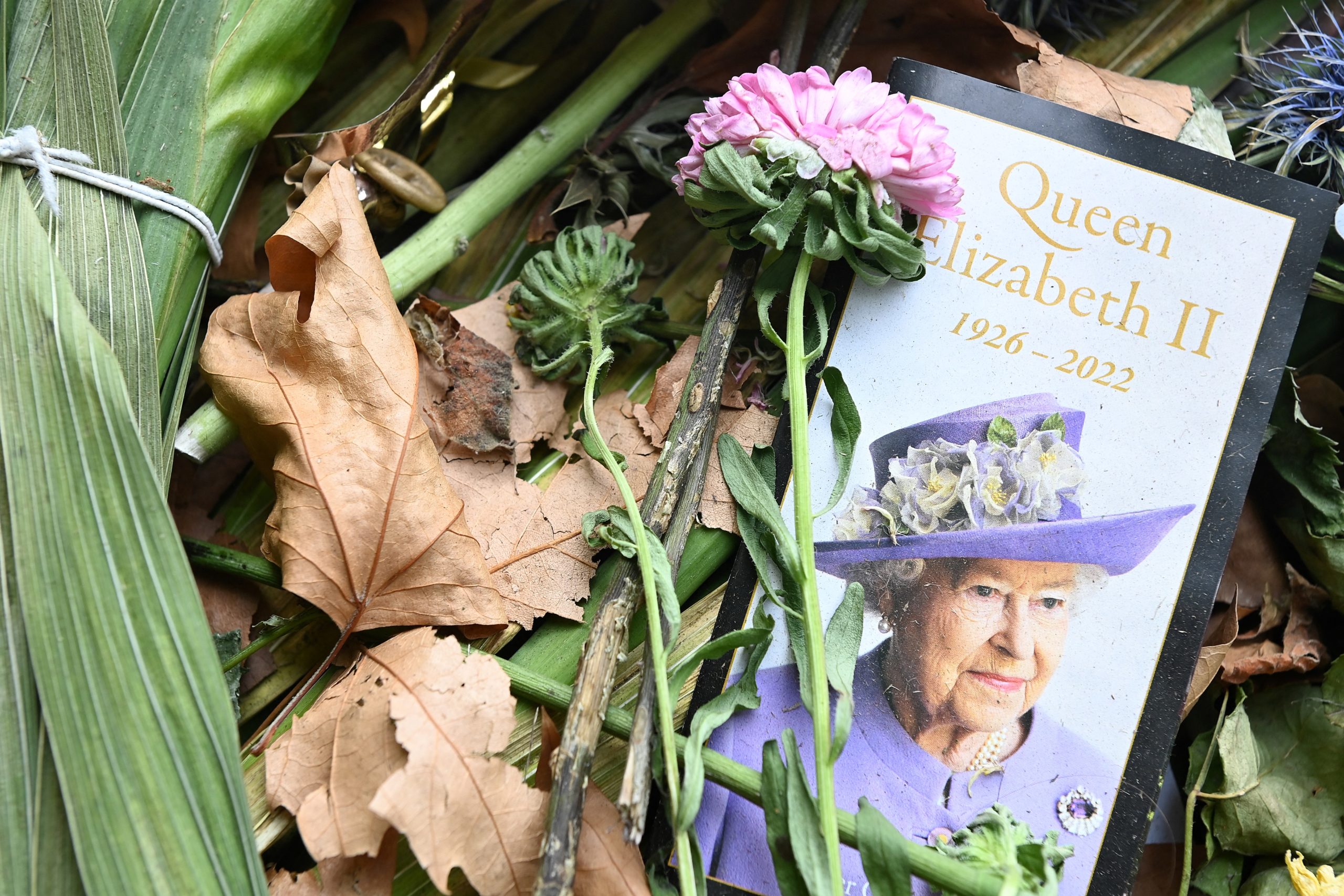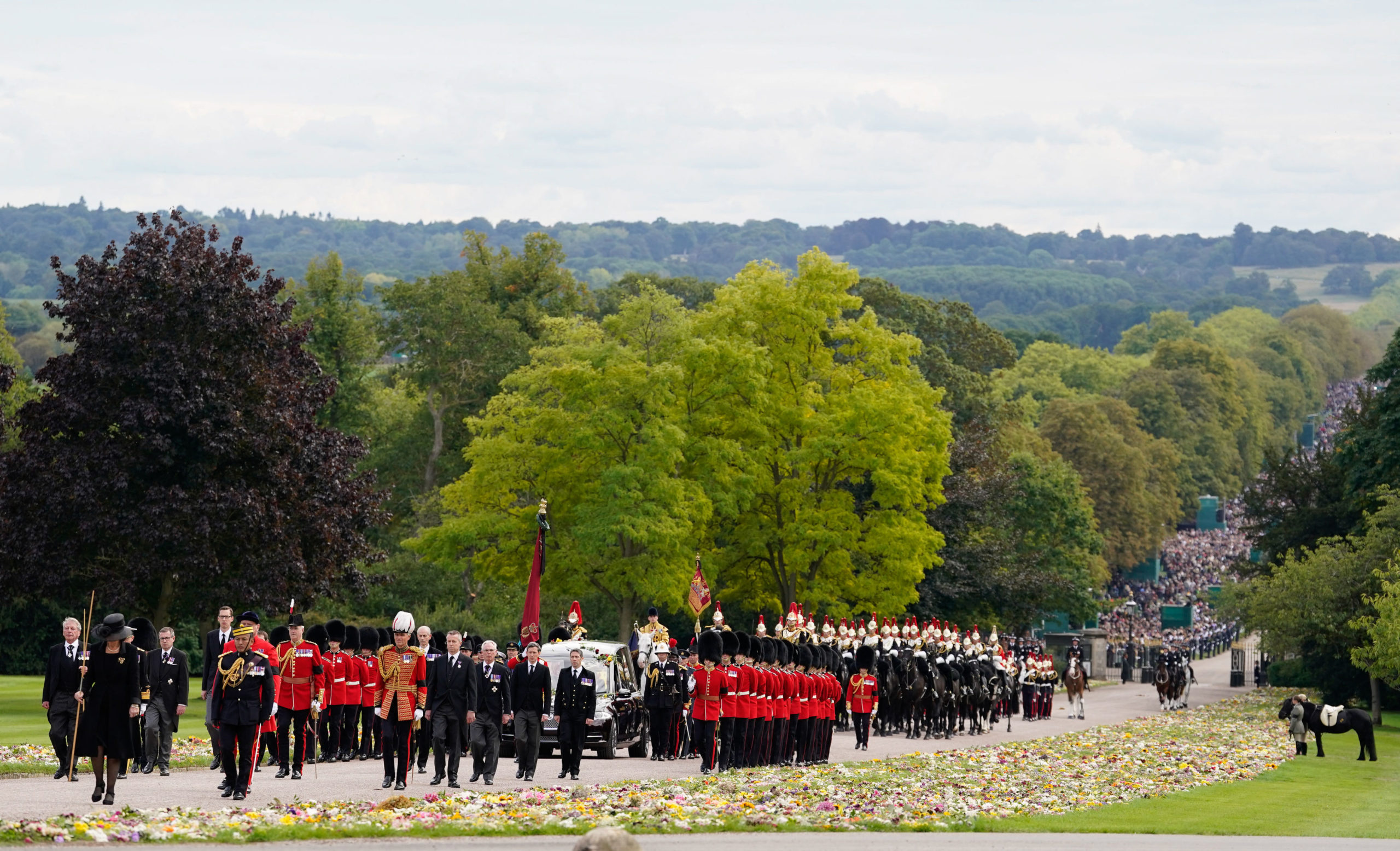Meghan Markle obsesses us because she is a symbol of our willful degeneration.
What Is a Monarch?

Elizabeth II understood her duty—do we?
On the evening of September 8, as mourners began to gather outside Balmoral Castle to grieve the death of their monarch, their monarch was inside, grieving too. In the U.K., the transition from one monarch to the next is instantaneous. At the moment of Queen Elizabeth’s death, her son, Prince Charles, became the King. The person may die, but the monarchy lives on. The Queen is dead, long live the King.
In the last analysis, a monarch is not a person. A monarch is a symbol—a country in human form. In the age of constitutional monarchy, this is really the monarch’s only job. Not just to represent his country, but to become it.
No one really seeks this responsibility out, or chooses it for himself. And by necessity it often comes at a moment of great personal grief. But Elizabeth II dedicated her life to it. To being Britain. At the age of 25 she gave up being Elizabeth Alexandra Mary Windsor and became Elizabeth Regina—Elizabeth the Queen.
For the entirety of her 70-year reign she kept quiet about politics. This was her job, and she did it impeccably. She met weekly with 15 prime ministers, beginning with Winston Churchill and ending—just barely—with Liz Truss. She kept those meetings private: no tell-all documentaries or public denouncements of Britain’s policies. Being Britain’s queen, to her, meant being its servant—her life a series of ceremonial engagements, audiences, and tours. When her country needed a voice, she lent it hers. When it mourned, she mourned. When it rejoiced, she rejoiced.
She chose her outfits not for comfort or for style but for easy visibility—so her subjects could see her as she walked among them, or spoke to them, or stood on her balcony, waving, waving, waving. We knew very little about her as a person, and that was by design. To us, she was not a person. She understood that, and accepted it.
It’s a notion we don’t really understand here in the U.S. We value individuality and independence, ambition, and ingenuity. We speak our minds and we stand up for what we believe in. We feel we deserve to know everything there is to know about our leaders. We don’t need a person to embody our country: we embody our country.
And fair enough. But still, there is something profoundly moving about a life dedicated to one’s country—about having the microphone and choosing not to use it. It is hard for Americans even to imagine a commitment so complete that we would give up that all-important personhood. But does this mean we cannot imagine being subsumed by something greater than ourselves?
That, in truth, is what made the Queen so special. She understood what no one else seems to—at least not anymore. That there was a price for the life she inherited, and the price was herself.
Take, by comparison, Prince Harry and his wife, Meghan. Fueled by Meghan’s uniquely American horror at the expectations placed on her simply for marrying the man she loved, the couple left the royal family but have been capitalizing on the fact that Harry was born royal ever since. Which has, rightly, drawn ferocious criticism.
Harry’s fame and fortune—and by extension, Meghan’s—is not his to do with what he will. It comes with a duty to perform. Meghan’s Americanness prevents her from understanding this. In refusing to perform their duty—but insisting that they keep their wealth and status—Harry and Meghan become grotesque.
True, Harry has known all his life that he will never, except by some tragedy of epic proportions, be king. But he was born into a family whose wealth and status were endowed by the country which expected that family to serve it in return. He and Meghan don’t seem to understand this. So their entire existence becomes obscene.
Compare the Queen, also—and perhaps more importantly—to Britain’s new King, Charles III. Charles the whiner. Charles the champion of politically charged causes. Charles, whose pining for Camilla Parker-Bowles (complete with cringey phone calls about becoming her tampon), public divorce from Princess Diana, and subsequent marriage to Camilla, drew us inexorably into his personal life. We know him—or at least, we think we do, which is just as bad.
Charles, disastrously, thinks he’s one of us. A real person and not a country. He wants a “slimmed-down and lower-cost” royal family. He’s thinking about the people—these preposterously rich and privileged people. And fair enough, I suppose. But a “slimmed-down” monarchy—a monarchy without the crowns and the palaces and the ceremonial attire—is not a monarchy at all. If he is just a man, why should we care about him?
On her 21st birthday, Elizabeth spoke to the country she would one day rule: “I declare before you all that my whole life, whether it be long or short, shall be devoted to your service.” And remarkably, it was.
As the news of Queen Elizabeth’s death was announced, rainbows arced across the British skies. One above Windsor Castle, another above the Queen’s official residence, Buckingham Palace in London. In doing her duty—in serving her country so completely that she became it—Elizabeth was a person of rare virtue.
The American Mind presents a range of perspectives. Views are writers’ own and do not necessarily represent those of The Claremont Institute.
The American Mind is a publication of the Claremont Institute, a non-profit 501(c)(3) organization, dedicated to restoring the principles of the American Founding to their rightful, preeminent authority in our national life. Interested in supporting our work? Gifts to the Claremont Institute are tax-deductible.
Russell Brand, Charles Taylor, and the Meaning of the Royal Funeral.


